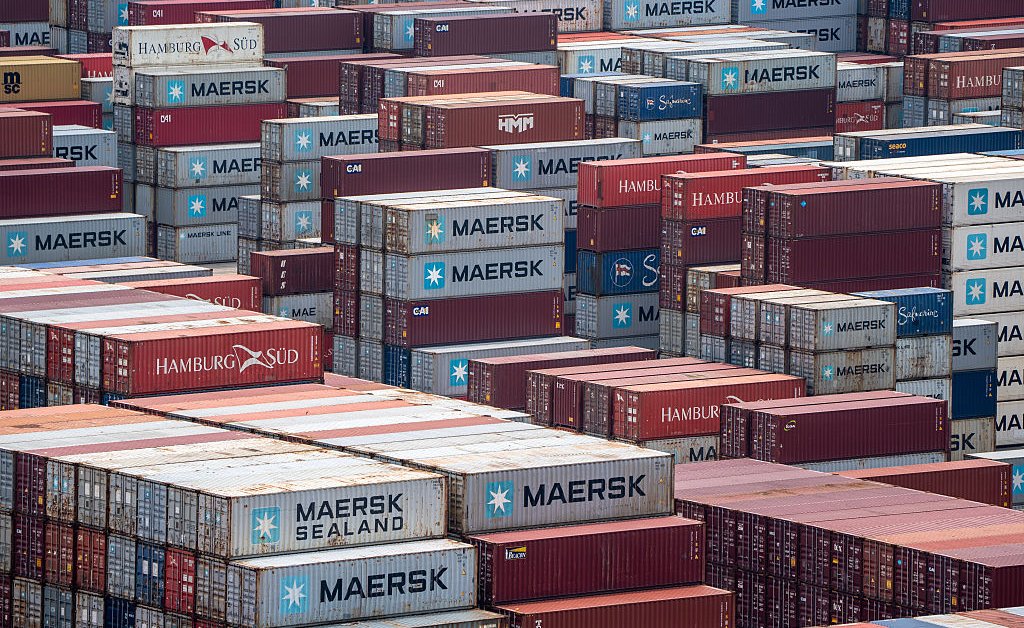Trade Tensions: A Catalyst for Climate Progress?
Editor’s Note: Concerns about escalating trade tensions are rising. Could this unexpected pressure actually accelerate climate action? This article explores the surprising potential link.
1. Introduction
Global trade wars are rarely seen as positive developments. However, the current climate crisis demands radical change, and some argue that the disruptions caused by trade tensions might ironically spur the necessary shifts towards sustainable practices and green technologies. This article will delve into the complex interplay between trade disputes and climate action, examining both the challenges and opportunities presented.
2. Why This Topic Matters
The urgency of climate change is undeniable. Current policies are insufficient to meet the targets set by the Paris Agreement, requiring a fundamental transformation of global industries and energy systems. Trade tensions, while disruptive, can act as a catalyst by:
- Promoting domestic manufacturing: Trade barriers incentivize domestic production, potentially boosting investment in green technologies and renewable energy within nations.
- Accelerating technological innovation: Competition driven by protectionist measures can lead to faster advancements in clean energy and resource-efficient technologies.
- Re-evaluating supply chains: Disruptions to global supply chains may push businesses to prioritize shorter, more resilient, and potentially greener supply routes.
3. Key Takeaways
| Point | Explanation |
|---|---|
| Domestic Green Growth | Trade barriers can incentivize domestic production of green goods and services. |
| Technological Advancement | Competition fosters innovation in clean tech and renewable energy solutions. |
| Supply Chain Restructuring | Trade tensions may push for shorter, more sustainable supply chains. |
| Potential for Backlash | Protectionism could stifle international cooperation on climate change initiatives. |
| Unintended Consequences | Trade wars may hinder overall economic growth, negatively impacting climate efforts. |
4. Main Content
4.1 Trade Tensions: A Double-Edged Sword
The impact of trade tensions on climate action is multifaceted. While protectionist policies might boost domestic green industries, they also risk hindering international cooperation crucial for addressing a global issue like climate change. For instance, carbon tariffs, intended to penalize countries with lax environmental regulations, could escalate trade disputes and harm international collaboration.
Key Aspects:
- Increased domestic production of renewable energy technologies. Tariffs and quotas on imported solar panels or wind turbines, for example, could boost domestic manufacturing and create jobs in the green sector.
- Investment in resource efficiency. Facing higher costs of imported materials, companies might be incentivized to adopt more resource-efficient production methods.
- Reduced reliance on global supply chains. Concerns about supply chain disruptions could encourage businesses to diversify their sourcing and shorten supply routes, potentially leading to less transportation-related emissions.
4.2 Interactive Elements on Climate Action in the Face of Trade Tensions
One crucial aspect is the potential for "green protectionism"—countries using environmental regulations as non-tariff barriers. This can be beneficial if it pushes for higher environmental standards, but could also be used to restrict competition unfairly. The risk of retaliatory measures and the potential for trade wars to overshadow climate cooperation remain significant challenges.
Facets:
- Risk of escalating trade conflicts: Protectionist measures could easily spiral into retaliatory actions, diverting attention and resources away from climate mitigation.
- Challenge of ensuring fair competition: Green protectionism needs careful design to avoid being used as a disguised form of protectionism.
- Reward of increased investment in domestic green technologies. Targeted policies can stimulate job creation and technological advancement in the green sector.
4.3 Advanced Insights on the Climate-Trade Nexus
A deeper analysis reveals the necessity of a strategic approach. While trade tensions could inadvertently accelerate some aspects of climate action, they are not a substitute for coherent and well-designed climate policies. International cooperation remains paramount. Expert opinions highlight the importance of designing policies that promote both environmental sustainability and fair trade practices.
Further Analysis:
- Studies show that certain types of trade barriers can increase the price of clean technologies, making them less accessible.
- Effective climate action requires global collaboration, something easily undermined by trade disputes.
- The focus should be on collaborative, rules-based trade systems that incentivize green technologies and sustainable practices.
5. People Also Ask (NLP-Friendly Answers)
Q1: What is the relationship between trade tensions and climate progress? A: It's complex. Trade tensions can inadvertently boost domestic green industries and innovation, but they also risk hindering crucial international climate cooperation.
Q2: Why are trade wars potentially relevant to climate change? A: Trade disruptions might force countries and businesses to re-evaluate supply chains, leading to shorter, more sustainable options. They may also accelerate investment in domestic green technologies.
Q3: How can trade policies support climate action? A: Well-designed trade policies can incentivize investment in green technologies, promote sustainable production methods, and support international cooperation on climate goals.
Q4: What are the risks of using trade policies to address climate change? A: The risk of escalating trade conflicts, unfair competition, and hindering international collaboration are significant concerns.
Q5: How can countries balance trade and climate goals? A: By implementing carefully designed policies that promote both fair trade practices and sustainable development, fostering international collaboration rather than protectionist measures.
6. Practical Tips for Navigating the Climate-Trade Nexus
Introduction: The following tips offer practical strategies for policymakers and businesses to navigate the complex relationship between trade and climate action.
Tips:
- Invest in green technologies and infrastructure.
- Support international cooperation on climate change.
- Design trade policies that incentivize sustainable practices.
- Promote transparency and accountability in supply chains.
- Encourage innovation in green technologies.
- Invest in education and training for green jobs.
- Prioritize sustainable consumption and production patterns.
- Support research and development in clean energy.
Summary: The relationship between trade tensions and climate progress is intricate and unpredictable. While certain aspects of trade disputes might inadvertently accelerate green growth in some areas, a coordinated, globally cooperative strategy is essential to achieve meaningful climate action.
7. Call to Action
Ready to dive deeper? Subscribe for more insights on the evolving climate-trade nexus and its implications for the future.

